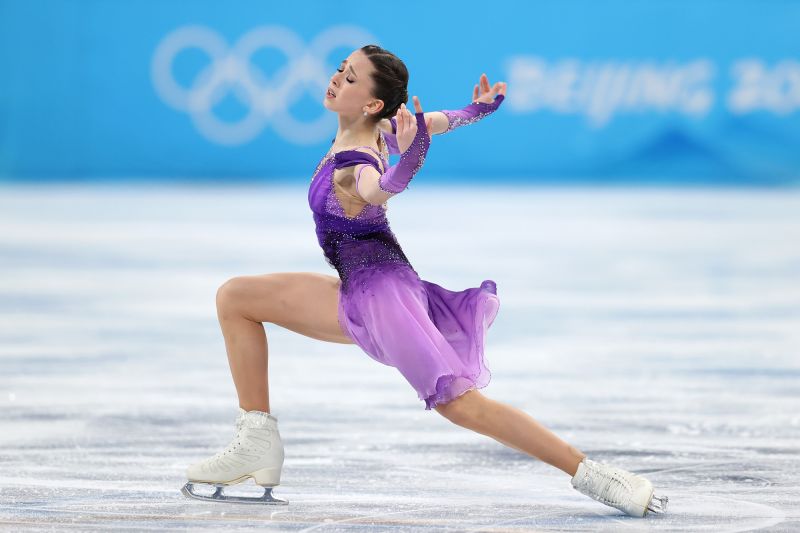
The Controversial Case of Kamila Valieva: A Figure Skating Saga

The recent ruling by the Court of Arbitration for Sport (CAS) regarding Russian figure skater Kamila Valieva has sparked a wave of controversy and debate. The decision to ban Valieva from competition for four years has raised questions about anti-doping regulations, the impact on past events, and the future of figure skating. Here's a detailed look at the case and its implications.
The CAS Ruling and Ban
In a groundbreaking decision, the Court of Arbitration for Sport (CAS) has declared Russian figure skater Kamila Valieva guilty of an anti-doping violation. The ruling comes after a long and tumultuous legal battle between anti-doping authorities and the 17-year-old athlete. Valieva has been handed a four-year ban from competitions, marking a significant turning point in her career.
Valieva competes at the 2022 Winter Olympics in Beijing.
The ban, which is retroactively effective from December 25, 2021, has sent shockwaves through the figure skating community and has raised concerns about the future of the sport. The CAS ruling also includes the disqualification of all competitive results achieved by Valieva since the positive test, further complicating her standing in past events.
Following the figure skating team event at the 2022 Winter Olympics in Beijing, Valieva's positive test for trimetazidine, a heart medication known for its endurance-boosting effects, came to light. The revelation sent ripples of controversy through the Olympic community and led to a reevaluation of the event's final standings.
Implications and Controversy
The CAS ruling has not only impacted Valieva's future in competitive figure skating but has also raised questions about the consequences of the ban on past events. The disqualification of Valieva's competitive results from previous competitions, including the 2022 Winter Olympics, has left the figure skating world in a state of uncertainty.
The controversy surrounding the retroactive disqualification of Valieva's results has sparked debates about the final standings of the team event at the 2022 Winter Olympics. The CAS statement highlighted that the decision on the final standings lies with other sporting bodies, adding another layer of complexity to the aftermath of the ban.
Nine empty boxes, which belong to members of the U.S. figure skating team who finished in second place last year in the Winter Olympics in Beijing, sit in a display case in the U.S. Olympic and Paralympic Museum on Thursday, June 22, 2023, in Colorado Springs, Colo. The figure skaters have not received their medals while a doping case involving a Russian skater plays out. (AP Photo/David Zalubowski)
The absence of medals for the affected teams, including the US and Japan, has created a lingering sense of injustice and unresolved tension in the figure skating community. The impact of the doping controversy continues to reverberate through the sport, leaving athletes, officials, and fans grappling with the fallout of the CAS ruling.
Legal and Sporting Responses
The legal and sporting responses to the CAS ruling have further added to the complexity of the case. The International Olympic Committee (IOC), the US Olympic Committee, the Japanese Olympic Committee, and the Canadian Olympic Committee have been contacted for their input on the matter, signaling the wide-reaching implications of the ban.
The conflicting stances of the Russian Anti-Doping Agency (RUSADA), the IOC, and the International Skating Union (ISU) have underscored the contentious nature of the case. RUSADA's initial ruling, which absolved Valieva of fault or negligence, was met with appeals from multiple parties, leading to a protracted legal battle and a reevaluation of the agency's position.
The finality and binding nature of the CAS decision have left little room for immediate recourse, but the option to appeal to the Swiss Federal Tribunal within 30 days on limited grounds provides a potential avenue for further legal challenges. The ongoing legal and sporting responses to the case reflect the enduring impact of the CAS ruling on the international figure skating landscape.












